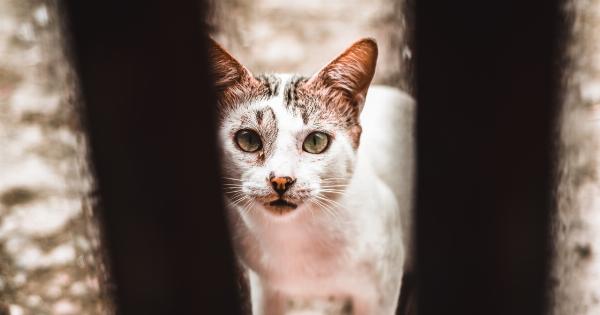Animal torture has been a contentious issue for many years, with activists and animal lovers advocating for stricter measures to curb this behavior.
Finally, the US government has taken decisive action by passing a law that makes animal torture a felony offense.
Why is This Law Important?
The law comes after years of campaigning by animal rights organizations, which have highlighted the link between animal torture and violent behavior towards humans.
There is a growing body of evidence that people who engage in acts of animal cruelty are more likely to commit violent crimes against people.
According to a study by the FBI, animal cruelty is one of the three strongest indicators of future violent behavior, along with arson and substance abuse.
This means that those who are cruel to animals are more likely to cause harm to humans, making it important to take this behavior seriously from a legal perspective.
What Does the Law Say?
The new law, called the Preventing Animal Cruelty and Torture (PACT) Act, makes it a federal crime to engage in acts of animal torture and cruelty.
The act defines animal torture as “conduct by a person who intentionally kills or harms an animal, or causes or procures an animal to be killed or harmed, for the purpose of filming or recording such conduct.”.
The law is broad in its definition, covering a wide range of behaviors that fall under the category of animal cruelty. This includes burning, drowning, suffocating, impaling, and crushing animals, among other acts of extreme violence.
What Are the Penalties for Violating the Law?
The PACT Act stipulates that anyone found guilty of animal torture can be sentenced to up to seven years in prison. However, if the act is recorded and shared online, the penalty can be increased to up to 10 years in prison.
This is an important provision in the law, as it aims to stop the spread of videos depicting acts of animal cruelty that can encourage others to engage in similar behavior.
In addition to imprisonment, those found guilty of violating the law can also face fines and a ban on owning animals.
This reflects the seriousness of the crime and the need to prevent individuals who engage in acts of animal cruelty from owning pets or working with animals in the future.
What Are the Implications of the Law?
The PACT Act has significant implications for animal welfare in the US and beyond. It sends a clear message that animal torture and cruelty will not be tolerated and that those who engage in this behavior will face serious consequences.
This is an important step towards curbing a behavior that has long been seen as a precursor to other forms of violence.
By making animal torture a federal offense, the law also ensures that it can be enforced more effectively across the US.
Previously, animal cruelty laws varied by state, which made it difficult to prosecute offenders who engaged in this behavior in different parts of the country. The new law provides a clear framework for prosecuting animal torture cases, making it easier for law enforcement officials to bring offenders to justice.
What Can We Do to Support This Law?
The PACT Act is a significant achievement for animal rights advocates, but there is still much work to be done to ensure that animals are protected from cruelty and abuse.
As individuals, we can do our part by reporting any incidents of animal abuse or neglect that we come across.
We can also support animal welfare organizations that work to protect animals from harm and advocate for stronger laws to treat them humanely.
By doing so, we can create a culture of compassion and respect for all living beings, which can help prevent future acts of cruelty and violence.
Conclusion
The PACT Act is an important step towards ending the practice of animal torture and cruelty in the US.
By making this behavior a federal offense, the law sends a clear message that such actions will not be tolerated and that those who engage in this behavior will face serious consequences.
While there is still much work to be done to ensure that animals are protected from abuse and neglect, this law provides a crucial framework for prosecuting offenders and holding them accountable for their actions.






























